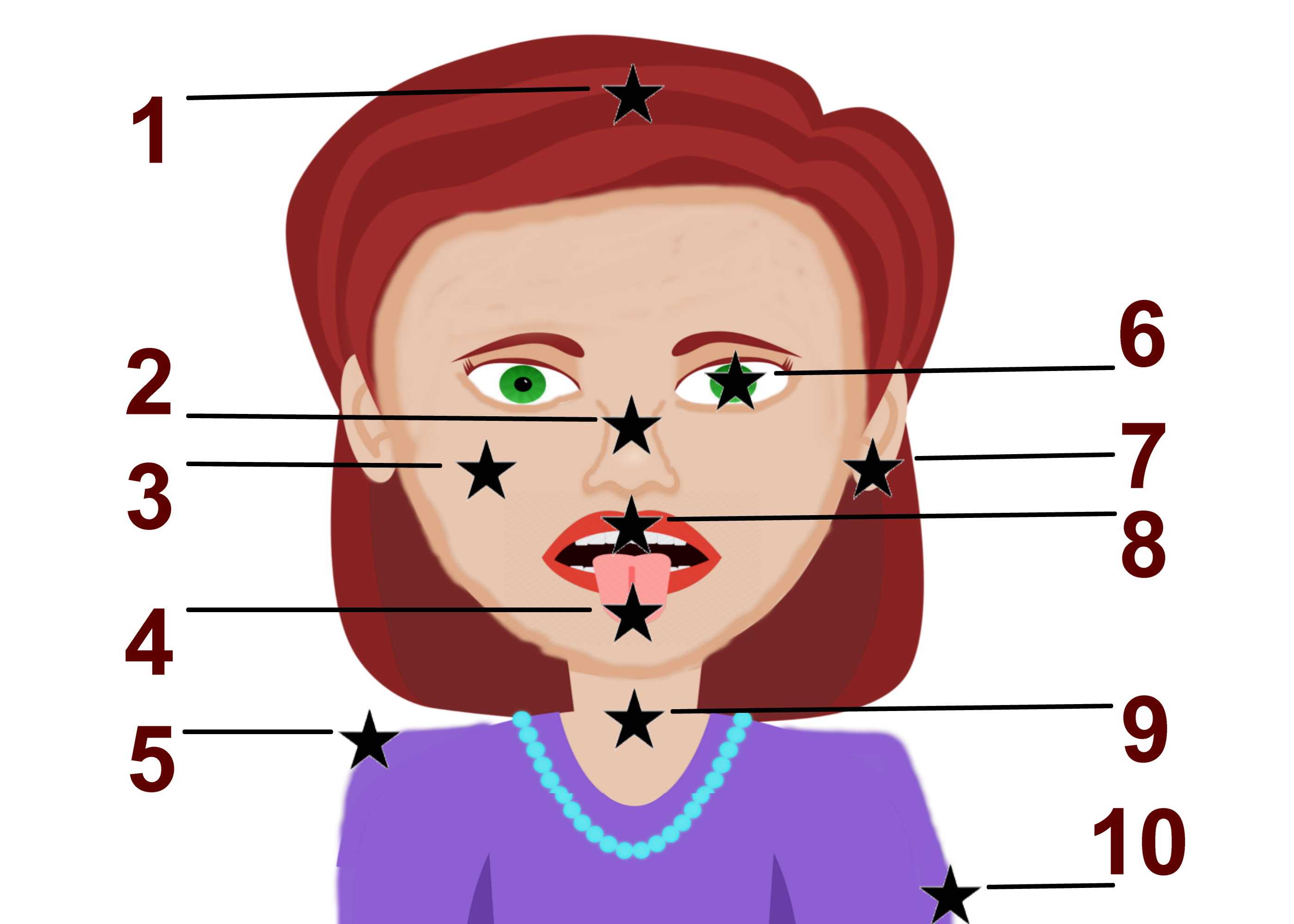
On the Face of It Trivia Quiz
Many idioms and proverbs involve body parts. This quiz has ten from the upper body. You just need to figure out which part from the clues and match them to the diagram.
A label quiz
by Midget40.
Estimated time: 3 mins.
